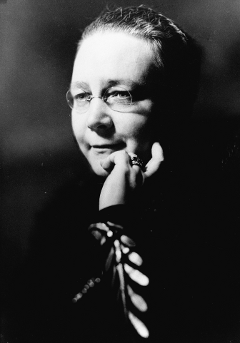
I’m a Protestant. I don’t believe in Purgatory. Yet I want to read Dante, so what can I do? Well, first, one can read Dante’s second volume of The Divine Comedy as a treatise that applies to this life also—God purges sin from our lives and we must respond properly.
The second thing that helps me in this quest is that Dorothy Sayers, a writer I love, undertook to make a fresh translation of Dante back in the 1940s-1950s. It was the crowning achievement of a life of literary talent.
What I discovered as I began her translation was a thoroughly enjoyable and illuminating 60+-page introduction in Sayers’s inimitable style and depth of understanding. It’s from that introduction that I share today.
“The fire of Hell,” Sayers comments, “is simply the light of God as experienced by those who reject it: to those, that is, who hold fast to their darling illusion of sin, the burning reality of holiness is a thing unbearable. . . . Hell is the fleeing deeper into the iron-bound prison of the self.” Those who are bound up in sin hate the light, and then that light becomes unbearable to them. This is reminiscent of C. S. Lewis’s wonderful fantasy The Great Divorce, where those in Hell get a glimpse of Heaven, only to discover they hate it and greedily cling to their “iron-bound prison of the self.”
Sayers continues,
It must always be remembered that for Dante . . . man is a responsible being. The dishonouring notion that he is the helpless puppet of circumstance or temperament, and therefore not justly liable to punishment or reward, is one which the poet over and over again goes out of his way to refute. . . .
When every allowance is made (and Dante makes generous allowance), when mercy and pity and grace have done all they can, the consequences of sin are the sinner’s—to be borne, at his own choice, in a spirit of sullen rebellion or of ready acquiescence.

Man’s free will is a cornerstone for both Dante and Sayers. Man chooses evil. Yet Sayers, echoing again Lewis and, of course, Scripture, reminds us that evil is not really a very inventive thing, and that we are in danger of forgetting “that it is evil which is a parasite upon the good, and not the other way around. Only good can originate anything: evil can only deform and corrupt the good already existing.”
The corruption of the good is the essence of evil: possessions are the gift of God, but we become greedy; sex is God’s idea for the expression of love and the making of families, but we turn it into lust; food is meant for our nourishment, but we become gluttons. Examples could be multiplied.
God offers us redemption from our sinful selves, yet we callously spurn His offer of love, and in doing so, think we are somehow justified. Sayers exposes the folly of our thinking:
This redemption is open to every man, individually, to accept or reject, because his will is free, and God will not usurp it. To make a great boast about defying Omnipotence is bombastic and absurd: it is a thing that any fool can do, since his freedom is itself the act of Omnipotence.
The folly of man, so well expressed. And Sayers’s words here remind me again of Lewis, who stated in Mere Christianity, in the oft-quoted chapter, “The Shocking Alternative,”
But there is a difficulty about disagreeing with God. He is the source from which all your reasoning power comes: you could not be right and He wrong any more than a stream can rise higher than its own source.
When you are arguing against Him you are arguing against the very power that makes you able to argue at all: it is like cutting off the branch you are sitting on.
Dante, Sayers, Lewis: they are one in this message that man is accountable for his actions. They are also one in the message that man must set aside his pride—his “iron-bound prison of the self”—and humbly kneel before the Source of all that is good.
